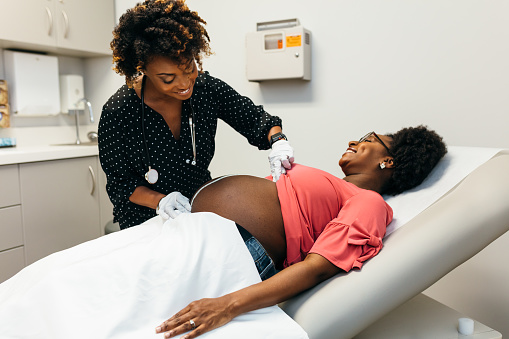ETHNIC MINORITY women experience more difficulty in accessing mental healthcare in pregnancy and after giving birth in comparison to white women, a study has revealed.
Over a hundred women from black, Asian and minority ethnic backgrounds who had faced or were currently experiencing mental health problems related to pregnancy or new motherhood were apart of the new research.
It found that although 98% of women were willing to be treated for their mental health issues, only 32% had not received any treatment for their condition, including talking therapies such as CBT or counselling.
Among the women who were experiencing low mood and depression, 20% chose not to discuss their feelings with healthcare professionals.
Elaine Amoah, assistant psychologist in South London and Maudsley NHS Foundation Trust, lead the research conducted in 2019. However, she believes the inequalities in accessing services for black, Asian and minority ethnic women are still present and need combating.
Speaking to Metro about figures, Elaine said: “It’s paramount that the mental health needs of women from Black, Asian and minority ethnic communities are recognised and that they receive adequate treatment supporting their recovery in the perinatal period.
“Stigma remains a prevalent barrier for Black, Asian and minority ethnic women to receiving treatment.
“In particular, internalised stigma, perceived public stigma, judgement from family or community, and treatment stigma – associated with seeking or receiving treatment.”
The survey further unearthed that one in eight of the women faced alienation and social withdrawal due to their mental health, as one in ten dealt with “stereotype endorsement” and discrimination.
A total of 30% who partook in the survey felt that “receiving treatment for emotional or mental problems carries social stigma”.
Elaine said: “This is significant as black and brown women may feel that they have to uphold the narrative of being a ‘Strong Black Woman’, or meet expectations to deal with it.”
The 123 women that were surveyed were all from “well-educated” backgrounds and with “middle-high incomes,” suggesting that the inequalities present in mental health care are “more likely to concern race rather than class”.
Elaine believes that intervention is one of the first major steps forward in tackling the inequalities.
“A group-based intervention for Black, Asian and Minority ethnic women may allow a safe space for women and an opportunity to express their emotions about their mental health, in addition to, providing a space for a network of women with shared experiences to feel less alone,’ she said.
“Partners or families can also play an important role in identifying symptoms of perinatal mental health,’ she adds.
“In addition, families can be supported to better understand mental health and wellbeing as a possible benefit to reducing perceived public and treatment stigma.
“Social networks can be used as a foundation of support, allowing women to talk about their issues and access service provision.
“Services need to provide meaningful and helpful advice throughout the perinatal period. There is an opportunity to use maternity services, voluntary organisations and available social networks and resources within the local community to improve awareness through social capital, social exchange, and community empowerment.”


Comments Form